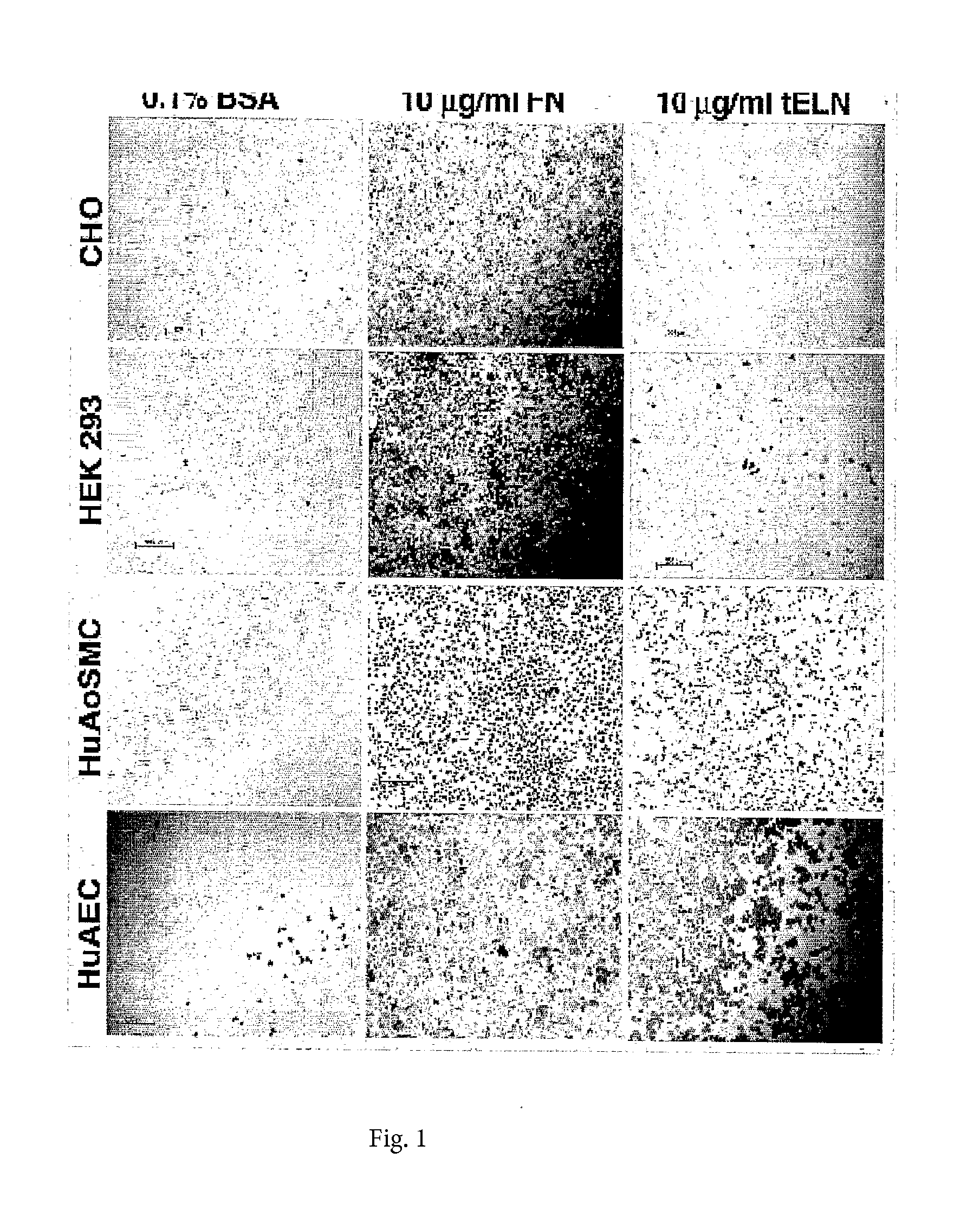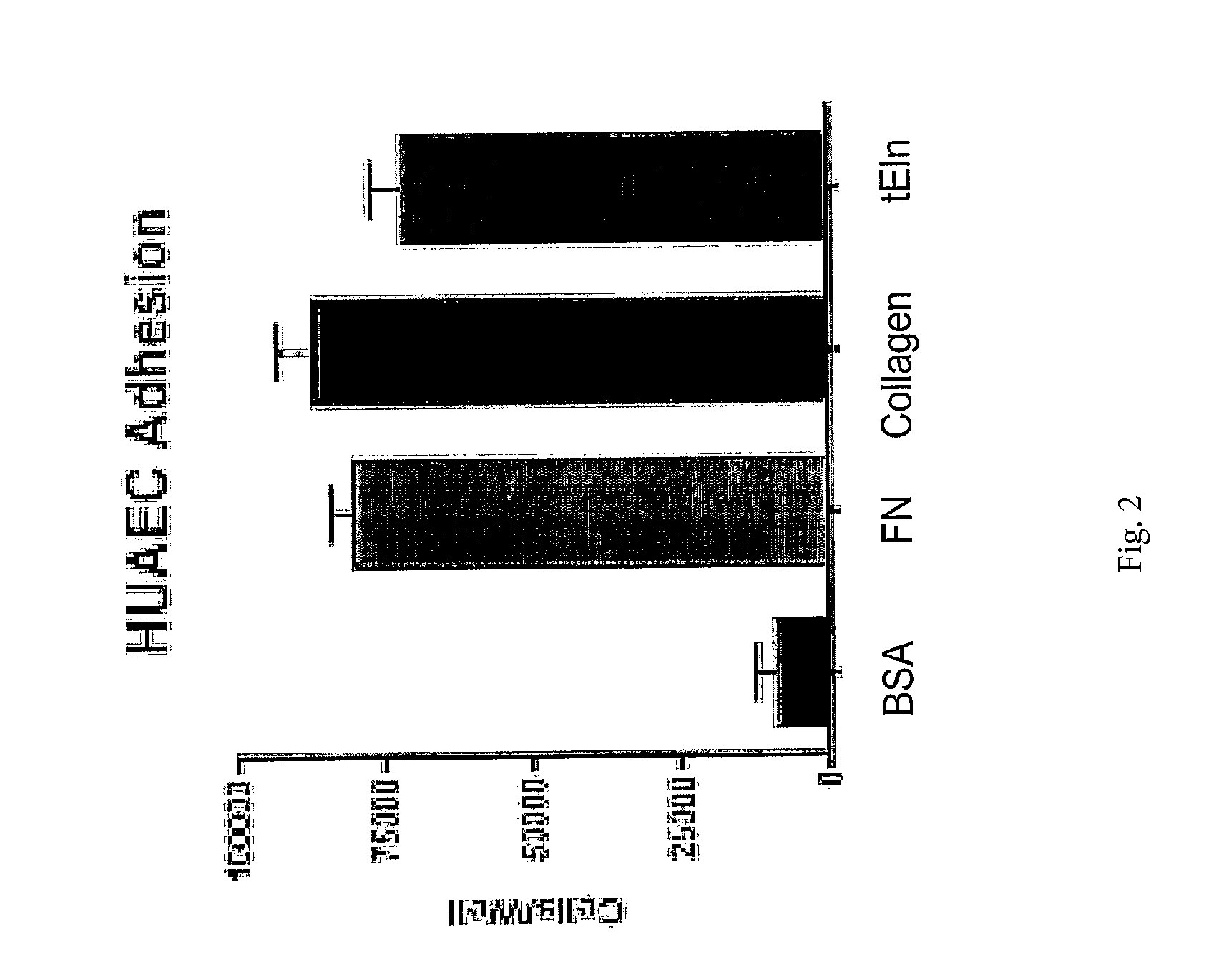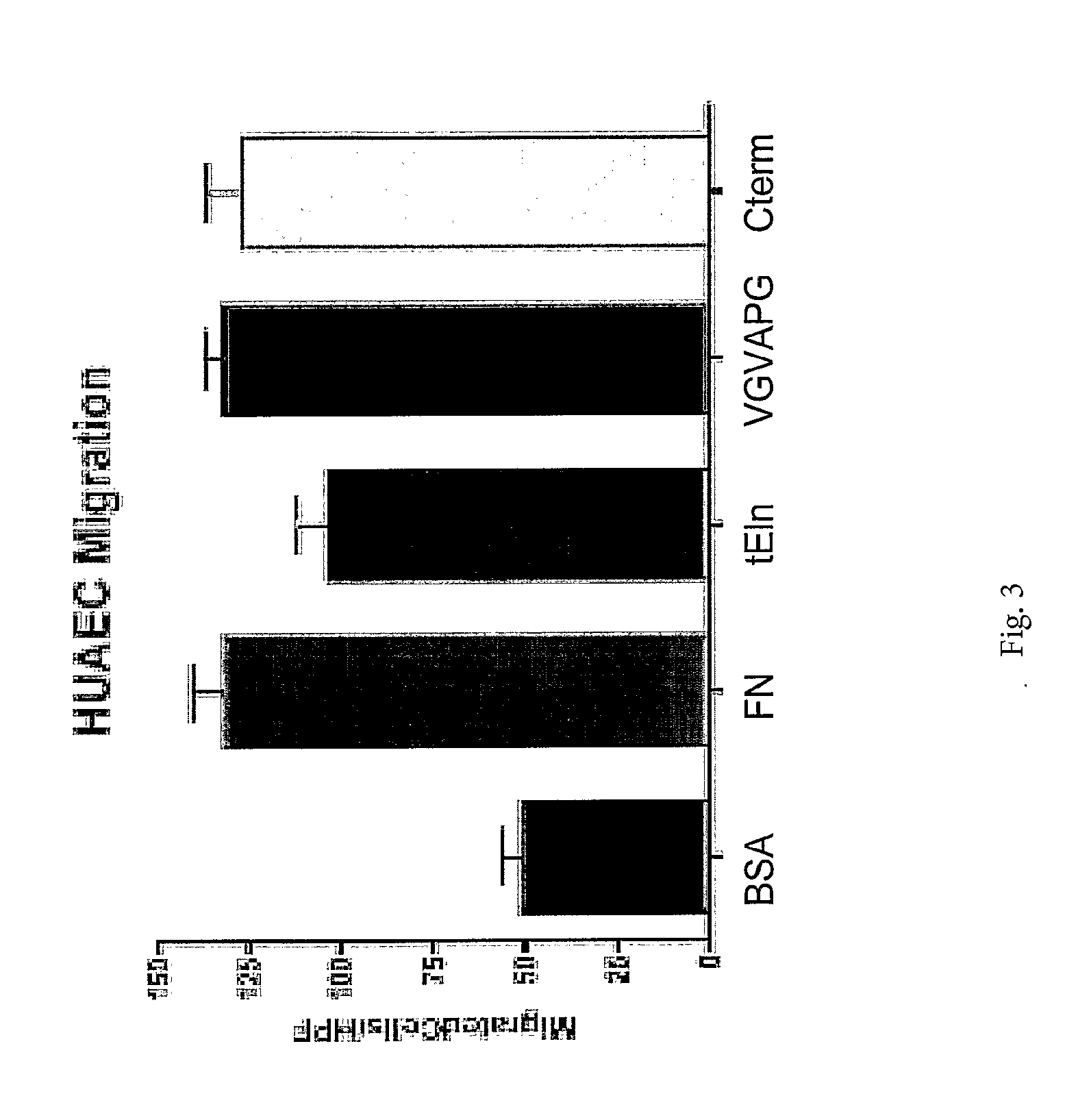Tropoelastin for Promoting Endothelial Cell Adhesion or Migration
a technology of endothelial cells and elastin, which is applied in the field of promoting endothelial cell adhesion or migration, can solve the problems of long-term (6 months) relief of vascular obstruction, complication of restenosis, and inability to meet the needs of patients, so as to promote endothelial adhesion, facilitate adhesion and/or migration, and treat and prevent restenosis or thrombosis.
- Summary
- Abstract
- Description
- Claims
- Application Information
AI Technical Summary
Benefits of technology
Problems solved by technology
Method used
Image
Examples
example 1
Tropoelastin Promotes Adhesion of Endothelial Cells
[0160]FIG. 1 shows the effect of fibronectin and tropoelastin on the adhesion of CHO cells, human embryonic kidney cells (HEK 293), human aortic smooth muscle cells (HuAoSMC), and human aortic endothelial cells (HuAEC). Cells were plated on culture plates coated with either 0.1% BSA (as a control), 10 ug / ml fibronectin (FN), or 10 ug / ml recombinant tropoelastin, and assayed for adherence to the coated substrate.
[0161]All four of the cell types examined adhered to fibronectin. In contrast, the HuAECs and, to a less extent, the HuAoSMCs, adhered to tropoelastin. However, neither CHO cells nor HEK 293 cells adhered to tropoelastin. These results demonstrated that endothelial cells and smooth muscle cells adhere to tropoelastin. However, unlike the binding of cells to fibronectin, there is some cell-type specificity to the binding of cells to tropoelastin. For example, FIG. 1 shows that CHO cells and HEK 293 cells, which do adhere to fi...
example 2
Tropoelastin, and Bioactive Fragments Thereof, Promote Migration of Endothelial Cells
[0164]FIG. 3 graphically summarizes resulting demonstrating that tropoelastin promoted migration of endothelial cells. Migration of HuAECs to BSA, fibronectin, and recombinant tropoelastin was measured. Recombinant tropoelastin promoted endothelial cell migration. Furthermore, tropoelastin promoted cell migration at a level comparable to that of fibronectin.
[0165]We additionally evaluated the ability of two bioactive fragments of tropoelastin to promote endothelial cell migration, and these results are also summarized in FIG. 3. We assayed the hexamer VGVAPG. This hexameric sequence is repeated multiple times within the full length tropoelastin protein. Furthermore, a single repeat of the hexamer, as well as multiple repeats of the hexamer, have been shown to retain at least some of the biological activities of the full length tropoelastin protein. We additionally assayed a 17 residue C-terminal fra...
example 4
Endothelial Cells Adhere to Coated Stainless Steel Devices
[0169]The present invention is based on the finding that tropoelastin, and bioactive fragments thereof, promote adhesion and migration of endothelial cells. This finding allows the design of methods and compositions to promote adhesion of endothelial cells to devices that are or can be implanted into human or non-human animals. As outlined in detail throughout the application, the coating of devices with endothelial cells (e.g., either prior to placement in the body or in vivo) helps prevent restenosis and thrombosis.
[0170]Given that an important aspect of the present invention is the prevention of restenosis and thrombosis, we conducted experiments to address whether endothelial cells would adhere to metal devices that had been coated with tropoelastin. Briefly, tropoelastin was covalently conjugated to a stainless steel disk approximately 6 mm in diameter. Tropoelastin was linked to the disk surface using an intermediate po...
PUM
 Login to View More
Login to View More Abstract
Description
Claims
Application Information
 Login to View More
Login to View More - R&D
- Intellectual Property
- Life Sciences
- Materials
- Tech Scout
- Unparalleled Data Quality
- Higher Quality Content
- 60% Fewer Hallucinations
Browse by: Latest US Patents, China's latest patents, Technical Efficacy Thesaurus, Application Domain, Technology Topic, Popular Technical Reports.
© 2025 PatSnap. All rights reserved.Legal|Privacy policy|Modern Slavery Act Transparency Statement|Sitemap|About US| Contact US: help@patsnap.com



